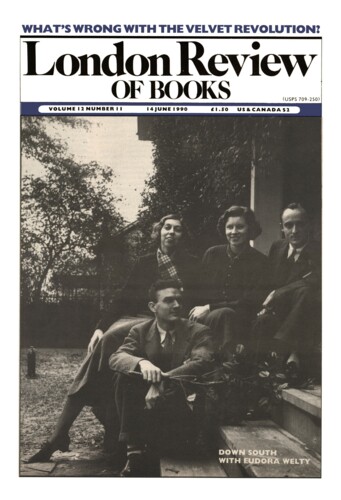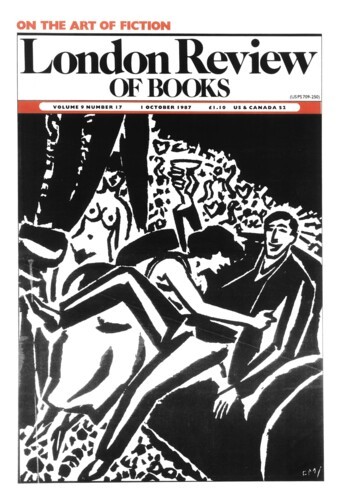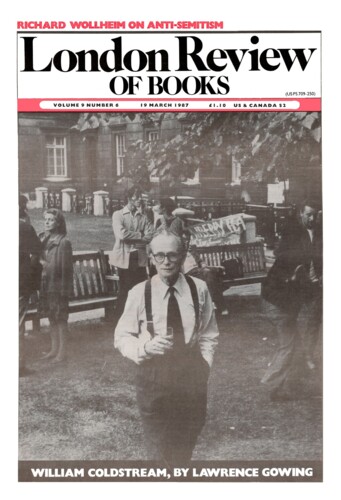Broadcasting and the Abyss
Norman Buchan, 14 June 1990
When, five long years ago, Mrs Thatcher appointed the Peacock Committee to report on the financing of the BBC it was with the intention of replacing the licence fee by advertising, and thus killing off one more of the quangos dedicated to public service. Economics were against her. It took the Committee only a couple of weeks to discover that this would slash the income of all existing commercial television. But no government committee or Royal Commission has ever said, ‘we recommend nothing,’ and this Committee, being a very bright committee, said a great deal. The aim, commented Alan Peacock, was to open up a free-market economy and let British broadcasting develop in the same way as the free press has developed since the ending of pre-censorship in 1694. The trouble with that comparison is that three centuries of the ‘free press’ have ended with 93 per cent of national daily and Sunday newspapers concentrated in the hands of a mere five people. Indeed, with only three people – Maxwell, Murdoch and Stevens – controlling 80 per cent of it. We might well ask whether we have not simply returned full circle to a 1694 triple pre-censorship. The implications for broadcasting were ominous.’



